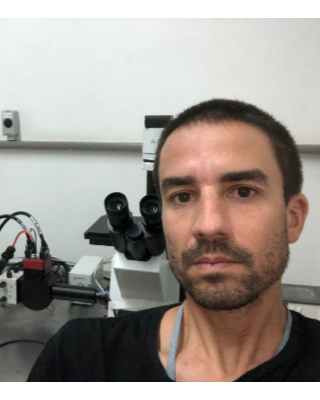Agenda IB

Elizabeth Bilsland
The current COVID-19 pandemic highlighted the vulnerability of our society to infections diseases. Whilst the current media focus is centered on SARS-CoV2, we must be prepared for the threat posed by drug-resistant parasites, fungi, and bacteria. The Synthetic Biology Laboratory (LaBS) was established in 2016 and is based on synthetic biology as a tool for drug discovery, using yeast and bacteria as hosts for heterologous expression and a platform for genome-wide screens. We have 3 well-established lines of investigation, which can further be improved and rapidly yield results. We are also introducing a novel highly ambitious line of research, taking advantage of our strong international collaboration network, for the development of novel antimicrobials inspired by secondary metabolites from native actinomycetes, filamentous fungi, or plant species.

Paulo Guimarães Gandra
Our primary research interest is the investigation of cellular mechanisms regulating skeletal muscle contractile activity and energy metabolism during stimulation and fatigue.
In our lab we are employing an intact single skeletal muscle fiber model that allows us to measure force generation and perform fluorescence microscopy to analyze intracellular parameters in real time during contractions at a single cell level.
Ultimately our long-term goal is to bring new information that might be used to improve muscle function and exercise capacity in different patho-physiological states.

Paulo Mazzafera
Paulo Mazzafera graduated in Agronomy (1982) and obtained his Ph.D. at the State University of Campinas (Unicamp, Brazil), where he holds a Full Professorship position in Plant Physiology. Crop productivity and secondary metabolism are the focus of his research, mainly on coffee, sugarcane, and eucalyptus. He also investigates the responses of plants to low P and how plants positively respond to biostimulant molecules, with a particular interest in root growth and P acquisition. Mazzafera has published over 200 papers and has been the editor of several journals. He is a member of the Brazilian Academy of Science of São Paulo Academy of Sciences.